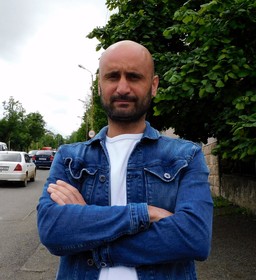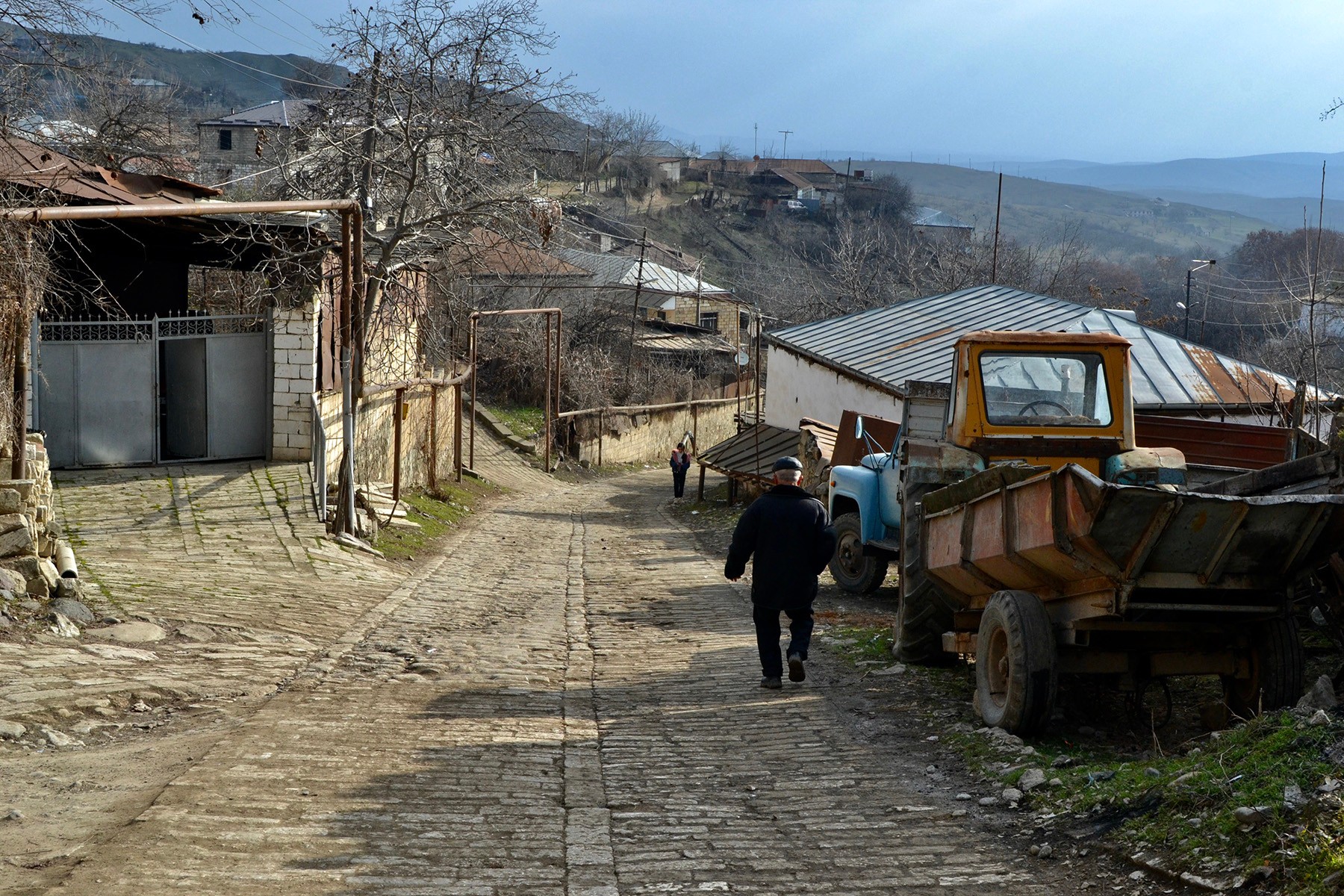
The small town of Chartar in the Martuni region of Nagorno-Karabakh is facing the second month of the region’s blockade. With gas disruptions leading to fuel shortages, and limited transport in and out of the town, some local residents feel doubly cut off.
The main bus station in Stepanakert has been quieter than usual for the past month with the buses to and from Yerevan no longer running. Public transport within Nagorno-Karabakh is also experiencing disruptions, due to a shortage of fuel.
The 13-seater minibus to the town of Chartar, 78 kilometres east of Stepanakert, accommodates twice as many people as it was designed for; half of the passengers stand in the aisle. With winter clothes, travelling in a minibus becomes more uncomfortable.
The driver says over two hundred cars are standing in the queue to fill up with gas, and he does not know when it will reach his turn.
‘Waiting is pointless’, he says.
One passenger who is taking plastic flowers to the funeral of a relative in Chartar makes a joke in an attempt to make light of the talk of shortages.
‘There’s no gas or electricity. They can cut off the water too; why would we need it in this freezing winter’, he quips.
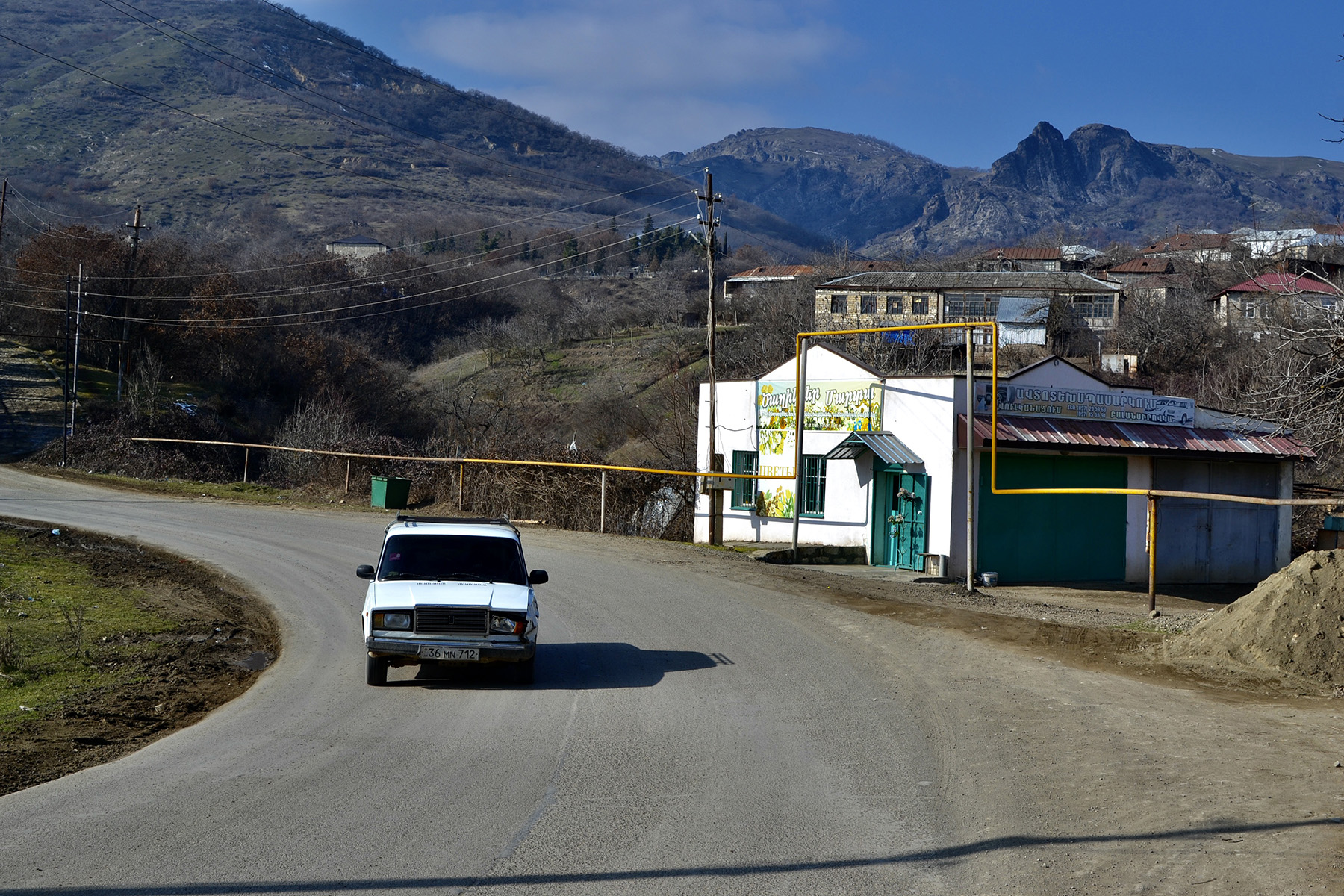
Those not taking the bus are seen hitchhiking on the roads to get home.
The Lachin Corridor — Nagorno-Karabakh’s lifeline to Armenia and the outside world — has been under blockade by a group of Azerbaijani government-supported ‘eco-activists’ since 12 December.
The blockade has resulted in almost total suspension of food and medicine supplies, with rare humanitarian aid from Russian peacekeepers and the Red Cross failing to meet demand. There have also been repeated disruptions of the supply of electricity, internet, and natural gas — used for heating and vehicle fuel.
This fuel shortage has meant that some out in the regions and away from the capital Stepanakert feel more isolated than ever.
Small-town Nagorno-Karabakh under siege
Life in Chartar appears much like that of the villages of Nagorno-Karabakh. But as the largest rural settlement in Martuni, it is officially classed as a city. The town is home to around 4,000 people, including around 200 people displaced in the Second Nagorno-Karabakh War.
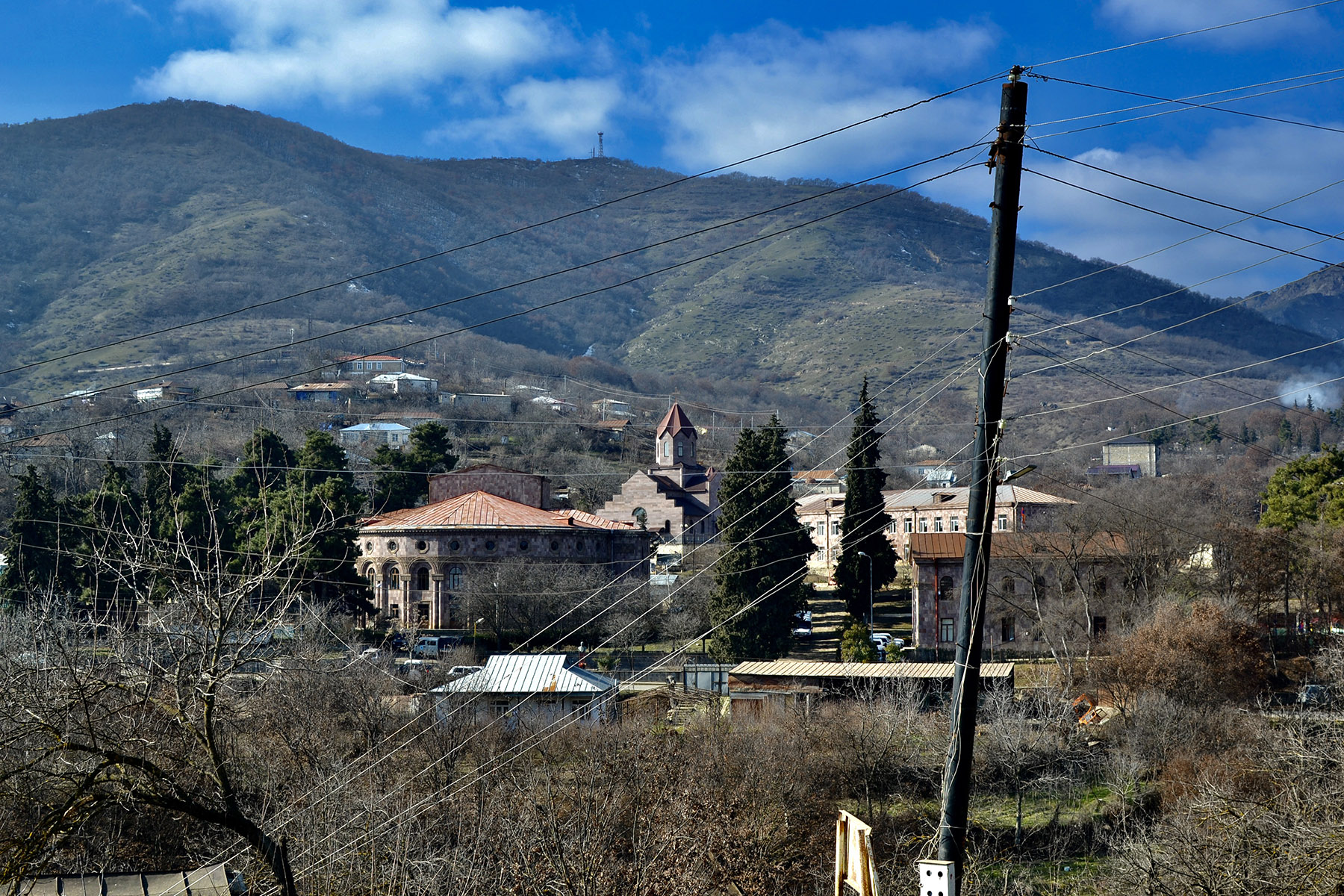
The Chartar hospital serves residents of the surrounding villages. But with the blockade ongoing, patients and doctors have found themselves with no heating to stay in the hospital. Sometimes it is difficult to find transport to get people to and from the hospital from the villages.
‘We cannot keep children here either because the building is not heated; you see, we heat water on the stove so that we can work’, says Hasmik Ghahramanyan, a doctor at the hospital.
‘It is not right to keep patients here, nor to have them come and go every day’.
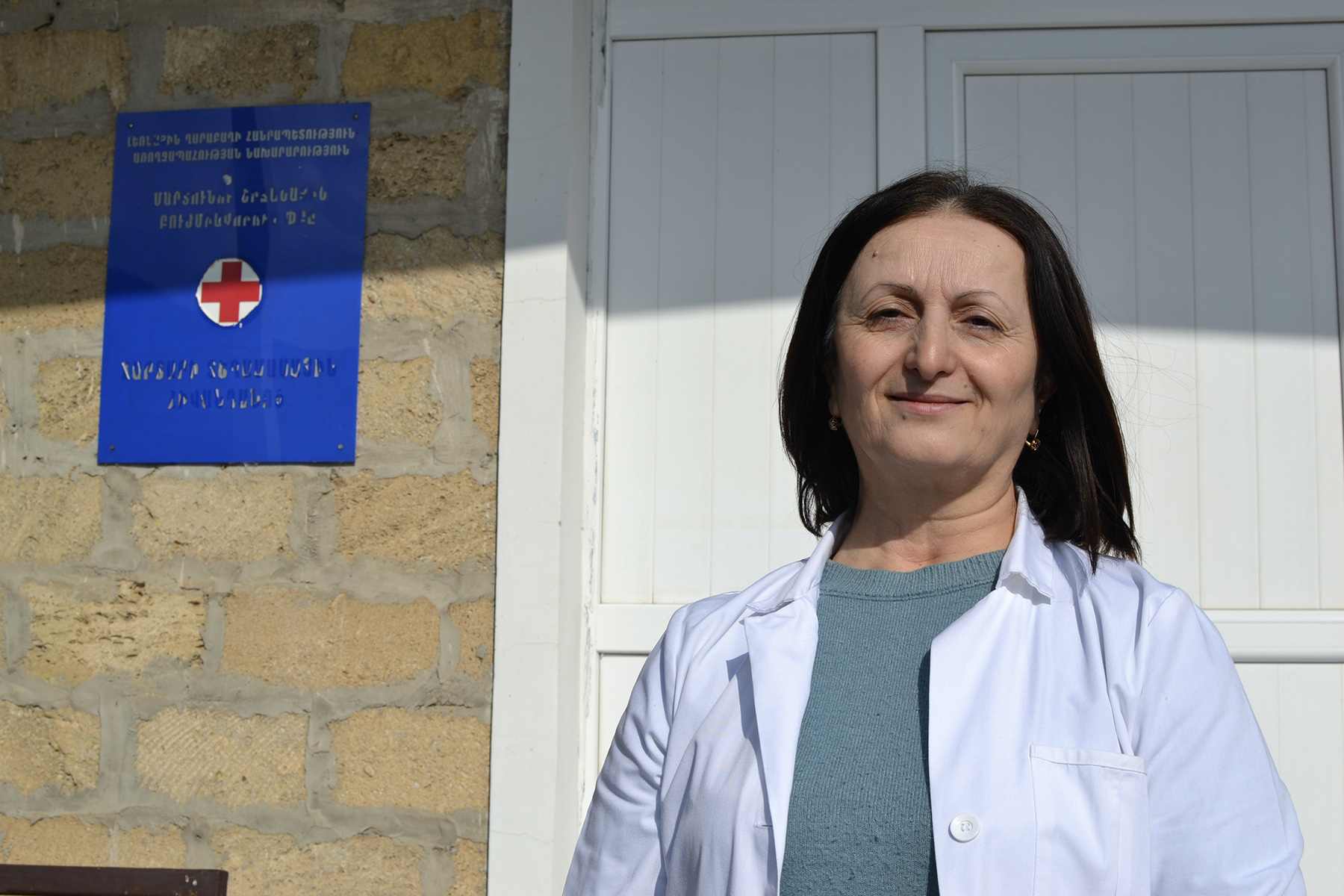
The gas supply to Nagorno-Karabakh ceased in mid-January. The pipes bringing gas from Armenia, which go through territory held by Azerbaijan, were damaged. A few days later, the supply was partially restored, but not enough to provide buildings and other facilities with permanent heating.
‘Medicines are also difficult to find; there are no antibiotics, no simple medicine tablets that I can prescribe for children’, says Ghahramanyan.
‘It’s very hard for adults as well. We have already had four deaths in recent days. The Red Cross helps some, but at the moment there are no medicines, you understand that it is impossible to wait in case of illness.’
With the mediation of the Red Cross, around five dozen patients needing urgent medical assistance have been transferred from Nagorno-Karabakh to hospitals in Armenia.
She adds that some parents call her asking to prescribe medications for their children over the phone.
‘But how can I do that? I have to see the baby’, she says. ‘Another patient should be sent to the Tuberculosis Dispensary in Stepanakert for an X-ray, but they are not sure if there will be electricity there. In other words, a person can go to Stepanakert with the last of their fuel and not be able to come back’.
‘It’s good that we have few children using baby formula — only three mothers. The rest feed their children naturally. We only have one box of baby formula’, Ghahramanyan says.
Tatev Hakobyan, 25, is a resident of Chartar and the mother of a toddler.
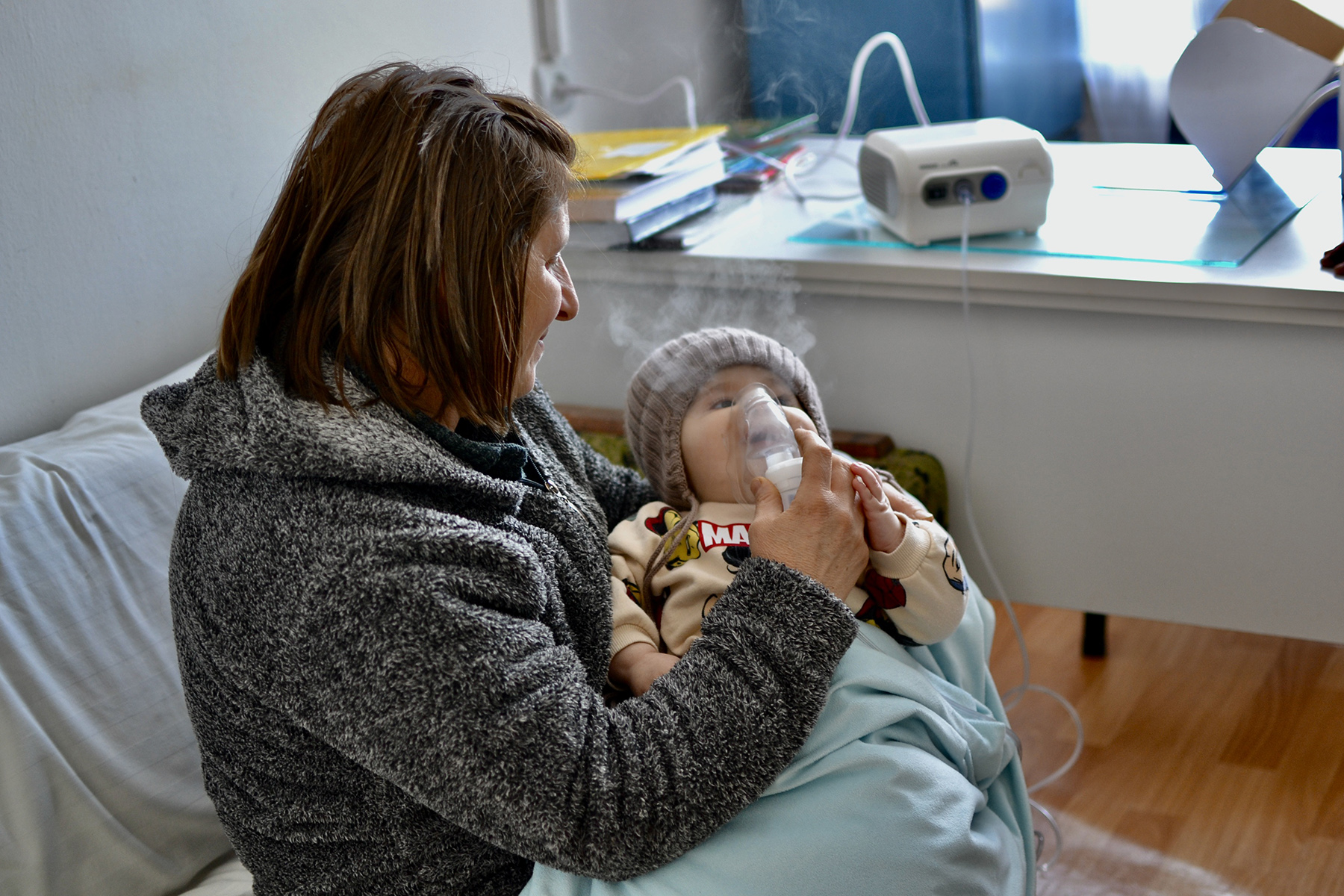
‘They say the Red Cross imports [baby food]’, says Hakobyan, ‘but the fact is that it does not reach us’.
‘We worry about them; they worry about us’
Many express more concern for their neighbours than for themselves.
‘I know that the situation in our neighbouring villages is worse’, says Hakobyan. ‘It’s very difficult. When the power is turned off at night, the room immediately cools down’, she says, adding that some days, they might not have electricity at all.
Victoria Poghosyan, an 82-year-old resident of Chartar, says she is living ‘neither well nor bad’, adding that her family ‘at least has something to eat’.
‘Talking about fruits is a dream, though’, she adds.
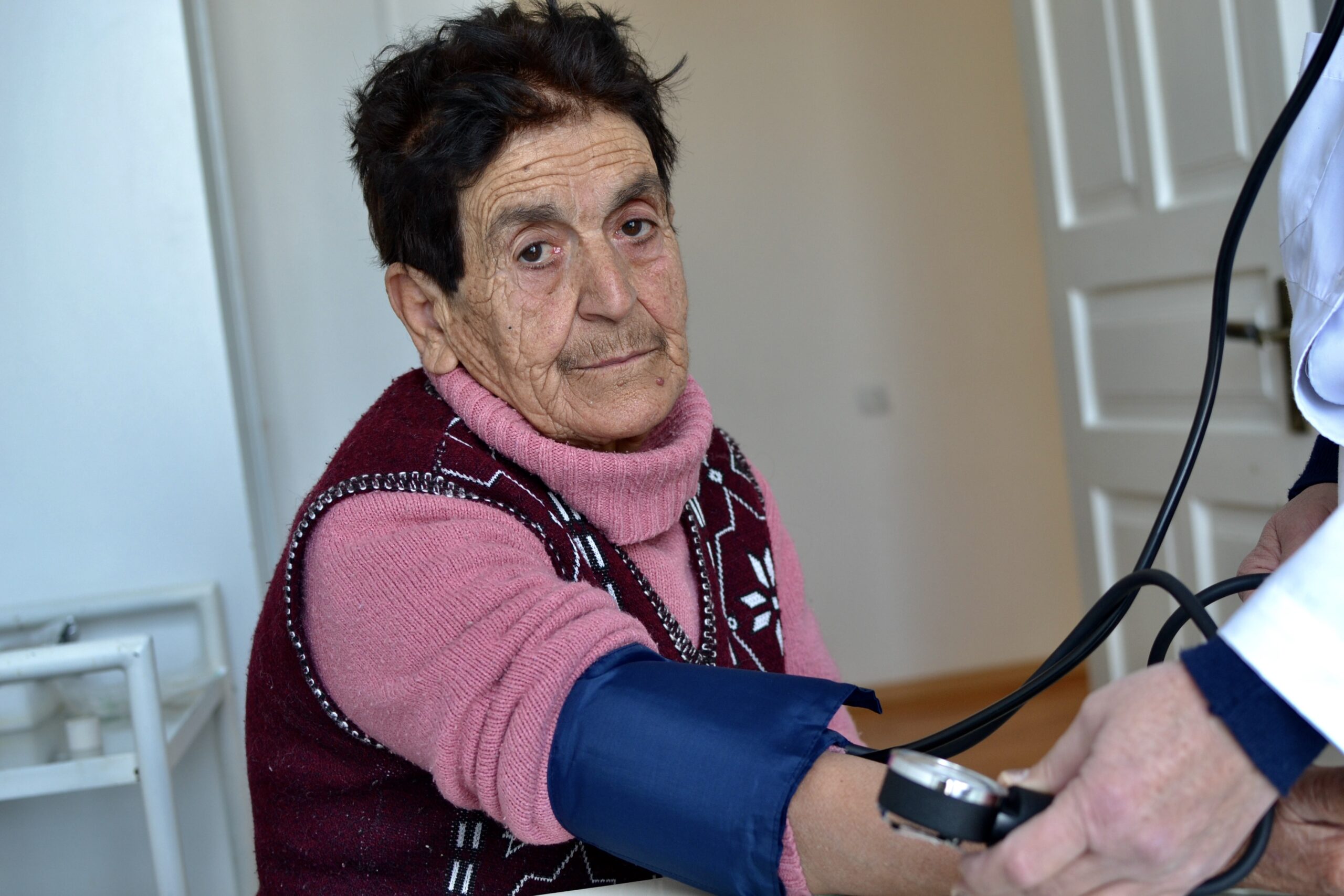
Victoria says it is not the same for everyone; ‘there are people longing for a simple bread’.
For heating, as well, some in Chartar worry more about people in the cities than themselves. Most of the population of Nagorno-Karabakh use gas for heating, though this is not the first time they have experienced disruptions.
But unlike last year’s gas shortages, now electricity from Armenia is also in short supply, with power cuts three times a day for a total of six hours.
This has left woodstoves as the only reliable source of heating.
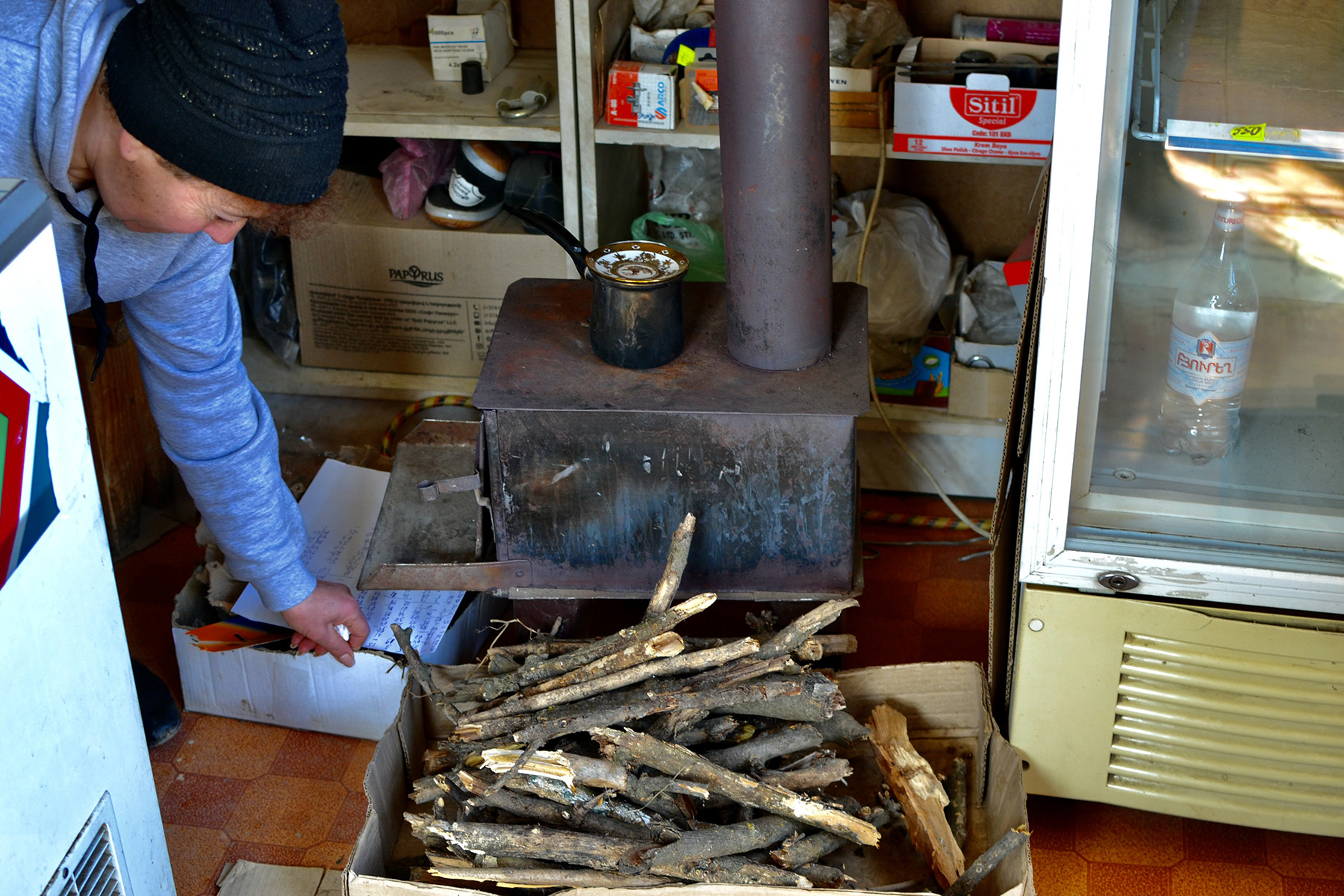
‘Ours are rural houses; we can heat them somehow’, says Hasmik Ghahramanyan from the local hospital.
‘My daughter and her children are catching colds now in Stepanakert’, she says.
In addition to homes in the city not being suitable for stoves, Ghahramyan also notes that it is harder for people there to obtain firewood. She herself gathers firewood from the trees in her garden.
‘We are worried about the residents of Stepanakert’, she says, ‘they do not have enough firewood’.
Tatev Hakobyan echoes Ghahramanyan’s concerns, saying the rural areas might have an advantage as they have resources from the ‘land, gardens, and cattle’.
‘But you have to buy things in the city.’
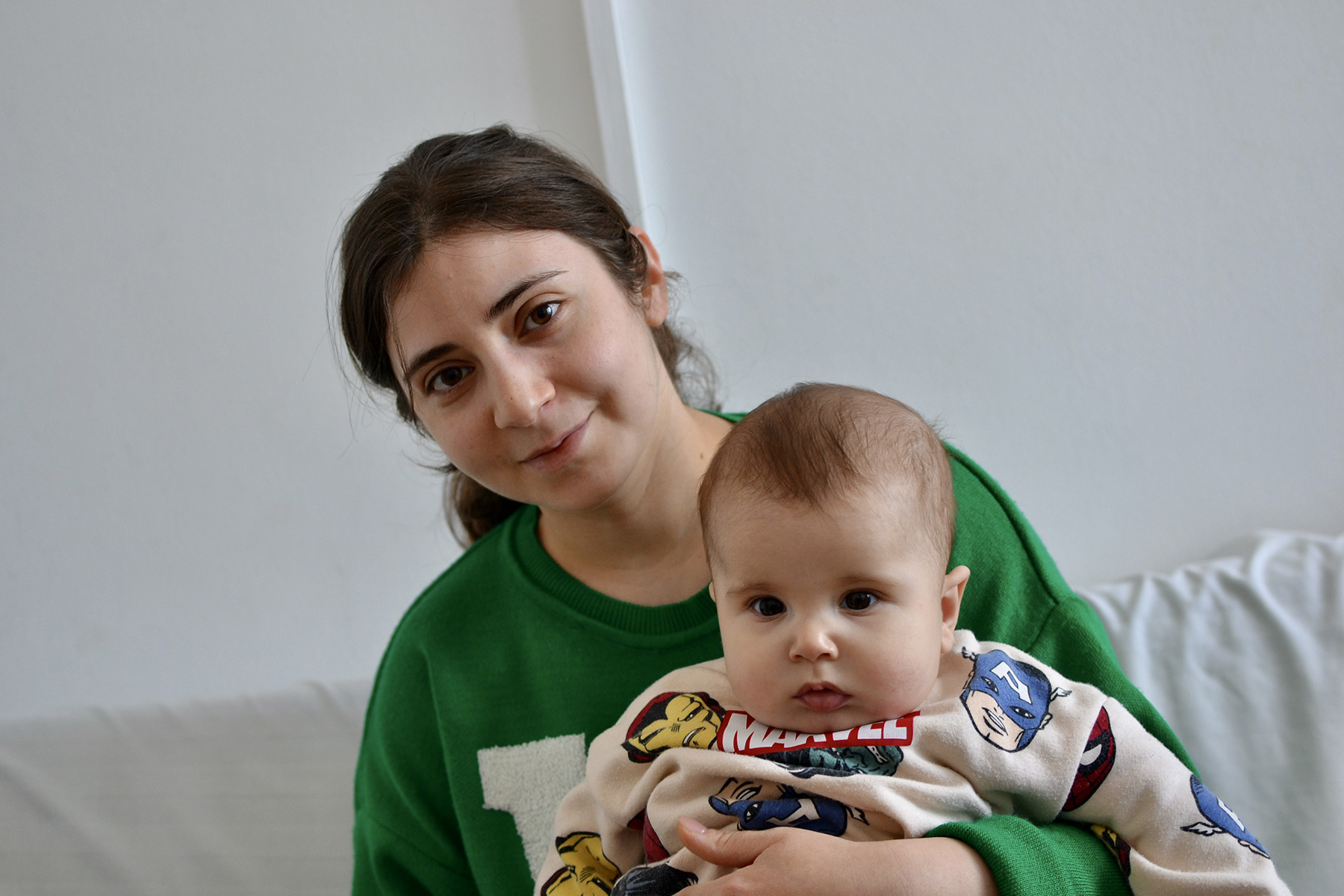
‘We worry about those who are in the capital; they worry about us’, Hakobyan says. ‘It’s difficult both here and there’.
But for Hakobyan, the isolation of living outside the capital is also a problem.
‘Everyone needs a job, but many have lost their jobs; therefore, there is no money. There is no gas to fill the car and go somewhere if necessary. We seem to be in a blockade within a blockade’.
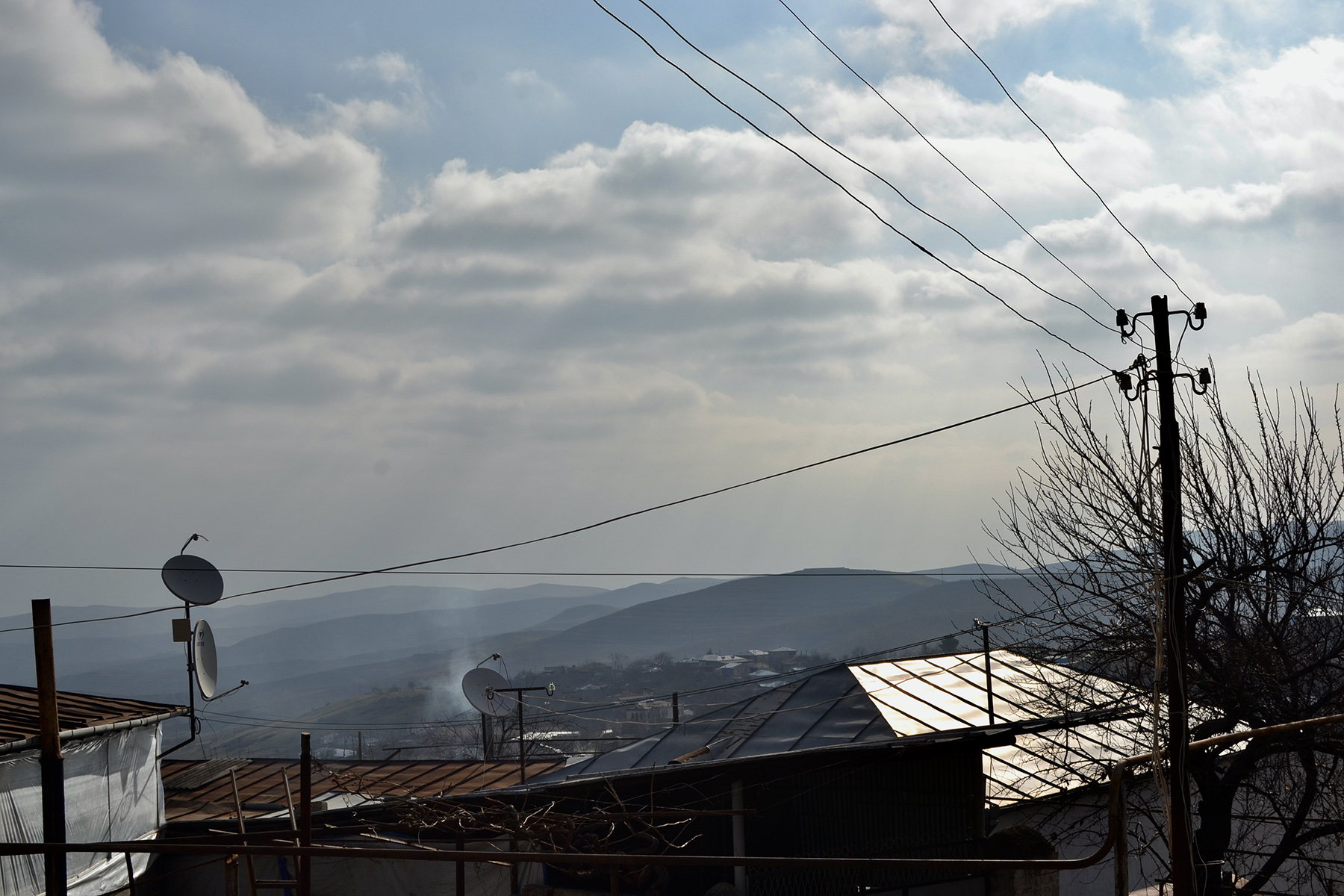
For ease of reading, we choose not to use qualifiers such as ‘de facto’, ‘unrecognised’, or ‘partially recognised’ when discussing institutions or political positions within Abkhazia, Nagorno-Karabakh, and South Ossetia. This does not imply a position on their status.


